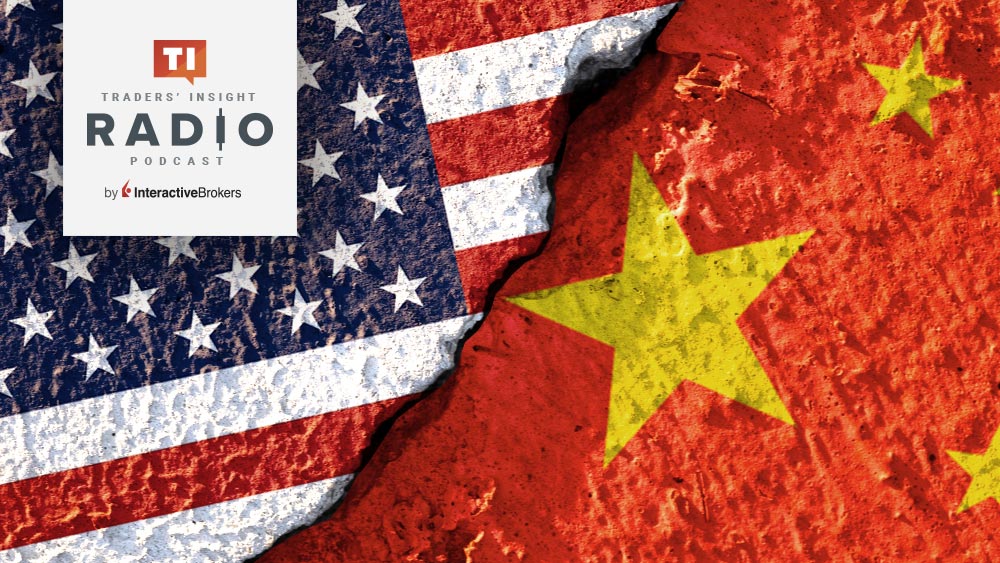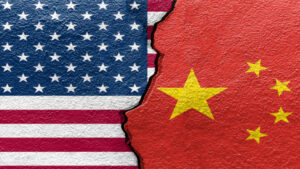The Holding Foreign Companies Accountable Act (HFCAA) continues to spur uncertainties over U.S.-listed Chinese equities despite some regulatory progress towards resolving issues of noncompliance.
The HFCAA, which became U.S. law in mid-December 2020, essentially requires non-U.S.-domiciled public companies to comply with the Public Company Accounting Oversight Board’s (PCAOB) inspection rules – effectively amending the Sarbanes-Oxley Act of 2002 (Sarbanes-Oxley or “SOX”).
Under the law, if a company’s auditors fail to comply for three consecutive years, then its shares would be delisted from U.S. exchanges and prohibited from trading in other venues such as over-the-counter (OTC) marketplaces. To date, companies have until 2024 to comply with HFCAA.
Historically, the Chinese government has not allowed its domestic firms to adhere to U.S. audit-related policies, which, now given the HFCAA, has triggered concerns among holders of Chinese American Depositary Receipts (ADRs) about their potential for delistings.
According to a recent report from the U.S.-China Economic and Security Review Commission, “The PCAOB and the U.S. Securities and Exchange Commission have repeatedly expressed their concern regarding obstacles to PCAOB inspection of auditors based in the PRC and Hong Kong.” Despite the PCAOB’s 2013 Memorandum of Understanding (MOU) on audit oversight with the China Securities Regulatory Commission (CSRC) and the Ministry of Finance, “the Chinese government has prevented Chinese-based auditing firms from complying with U.S. law on audit inspections.”
Other Risks
Moreover, the U.S.-China Economic and Security Review Commission underscored potential national security risks stemming from investment in Chinese companies, “including the development of technology used for censorship and surveillance and in support of the military.”
They cited Weibo Corporation as an example of a company that “works under government direction to censor posts on its blogging platform and is used by the central and local governments to surveil and censor public protests. Ostensibly private companies in China are subject to pressure and control by the state.”
U.S. regulators have also been generally wary of financial fraud after the SEC charged China-based Luckin Coffee with falsifying certain statements from April 2019 to January 2020. The company was subsequently delisted from the Nasdaq stock exchange in June 2020, and in December of that same year, it agreed to pay around US$180 million to settle charges.
Homecoming Parade?
Against this backdrop, some market participants anticipate that U.S. exchanges will likely see an exodus of Chinese companies, which, as of the end-March 2022, held a little more than 260, with a combined market cap of just south of US$1.5 trillion, including Alibaba Group Holding Limited (NYSE: BABA), PetroChina Company Limited (NYSE: PTR), JD.com, Inc (NASDAQ: JD), and Baidu, Inc (NASDAQ: BIDU).
UBS analysts, for example, recently noted that “in the area of capital entanglement, regulatory discrepancies between the two countries would likely drive Chinese companies away from U.S. exchanges.
“The homecoming of Chinese ADRs looks set to continue, through dual listings in mainland China and Hong Kong for those eligible.”
Shift in Sentiment
However, at end-March 2022, some signs of a regulatory shift seem to have been made after an official from the CSRC stated that the “Chinese side has engaged with the Public Company Accounting Oversight Board (PCAOB) for many rounds of candid, professional and effective consultations which have on the whole yielded positive progress, and such engagement will continue.
“Both sides have the intention to resolve differences and issues. The wisdom and willingness of both sides to resolve this matter are crucial.”
Converts
Meanwhile, some investors and fund managers have been busy converting their U.S.-listed Chinese ADRs to H-shares – their secondary listings in Hong Kong.
KraneShares, for instance, noted that it has converted most of the U.S. holdings in its KraneShares CSI China Internet ETF (NYSEARCA: KWEB) and expects its portfolio to be fully converted out of ADRs by the end of 2022.
According to KraneShares, about 71% of KWEB’s holdings by weight are comprised of Hong Kong-listed Chinese companies as of March 11, 2022 – up from around 25% in the prior year.
The Hong Kong Stock Exchange (HKSE) enacted a listing rule – effective January 1, 2022 – that allows almost all U.S.-listed Chinese companies to re-list in Hong Kong.
KraneShares added it anticipates that more companies will list in Hong Kong and that “the liquidity of Hong Kong shares is expanding as more institutional investors convert ADRs to Hong Kong shares.”
Price Drama
Meanwhile, prices of many individual Chinese ADRs, as well as certain exchange-traded funds (ETFs) (there are roughly 65 ETFs that have exposure to BABA alone) have seen dramatic drops over the past year and year-to-date 2022, including:




Source: IBKR Trader Workstation


Source: IBKR Trader Workstation
Market participants will also likely remain cautious about China-focused equities, amid ongoing, global geopolitical tensions, Chinese internet regulations, as well as diverging monetary policies between the U.S. Federal Reserve and the People’s Bank of China.
—
More Insights!
For more insights on the HFCAA and its impact on holders of Chinese ADRs, listen to IBKR’s Traders’ Insight Radio Podcast U.S. Policy & Political Will – the De-listings of Chinese Equities, where KraneShares’ CIO Brendan Ahern discusses the hurdles of de-listings, conversions, as well as benefits and risks faced by U.S. and global investors.

Find other related educational material and information about IBKR’s ADR conversion services:
Disclosure: Interactive Brokers
The analysis in this material is provided for information only and is not and should not be construed as an offer to sell or the solicitation of an offer to buy any security. To the extent that this material discusses general market activity, industry or sector trends or other broad-based economic or political conditions, it should not be construed as research or investment advice. To the extent that it includes references to specific securities, commodities, currencies, or other instruments, those references do not constitute a recommendation by IBKR to buy, sell or hold such investments. This material does not and is not intended to take into account the particular financial conditions, investment objectives or requirements of individual customers. Before acting on this material, you should consider whether it is suitable for your particular circumstances and, as necessary, seek professional advice.
The views and opinions expressed herein are those of the author and do not necessarily reflect the views of Interactive Brokers, its affiliates, or its employees.
Disclosure: OTC Securities
An investment in an OTC security is speculative and involves a high degree of risk. Many OTC securities are relatively illiquid, or "thinly traded," which tends to increase price volatility. Illiquid securities are often difficult for investors to buy or sell without dramatically affecting the quoted price. In some cases, the liquidation of a position in an OTC security may not be possible within a reasonable period of time.

























